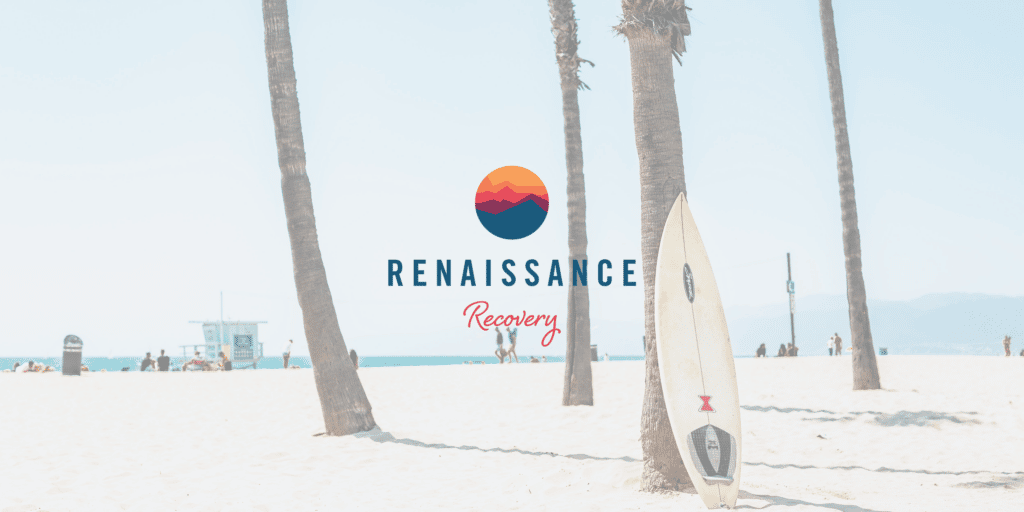Learning how to help a drug addict is something millions of people would benefit from, with over 20 million people in the United States diagnosed with substance use disorder, according to NSDUH data.
How to help people with addiction needs to start with an understanding of addiction and the signs of drug abuse and from there getting help via a substance abuse treatment program like an Orange County rehab.
Need help getting addiction treatment?
Is My Loved One Using Drugs?
Drug addiction often begins with the experimental and recreational use of substances in social settings. Nobody sets out to become a drug addict.
Although almost any substance has the potential for abuse, some drugs have a much greater risk of dependence and addiction than others – opioids and crack cocaine, for instance.
Identifying the substance of abuse is key and will help inform your input when it comes to helping your loved one to kickstart their recovery.
The longer someone abuses substances, the more difficult it becomes to stop without experiencing adverse withdrawal symptoms and powerful cravings. This means that the sooner you recognize the signs of drug addiction in a loved one, the easier it will be for them to recover.
The specific symptoms of drug addiction vary from drug to drug, but there are some universal markers worth looking out for. These can be categorized as follows:
- Physical signs of drug addiction
- Behavioral signs of drug addiction
- Psychological signs of drug addiction
Physical signs of drug addiction
- Extreme lethargy
- Frequent runny nose
- Impaired physical coordination
- Bloodshot eyes
- Watery eyes
- Pinpoint pupils
- Poor personal hygiene
- Track marks on skin
- Chemical smell on clothes or breath
- Weight loss or weight gain
- Clenching the jaw
- Disrupted sleep patterns
- Tremors
- Seizures
Behavioral signs of drug addiction
- Reduced interest in usual hobbies or interests
- Changes to social circle
- Withdrawal from family activities
- Self-isolating behavior
- Secretiveness
- Poor performance at school or work
- Repeated lying
- Deceitful behavior
- Legal issues
- Financial issues
- Neglecting responsibilities
Psychological signs of drug addiction
- Changes to personality
- Depression
- Anxiety
- Panic
- Paranoia
- Poor outlook on life
- Negative self-image
- Withdrawing emotionally from friends and family
- Reduced motivation
- Apathy
Now you know what to look out for, perhaps your suspicions are confirmed. You might now be wondering how to save a drug addict in your life, and we have some simple pointers to help you with that next.

How to Help a Drug-Addicted Family Member
Regardless of the stage of recovery your loved one is at, you can expect a degree of conflict to arise.
You should accept this as part of the process of change that’s underway, and you should do everything possible to prevent conflict from escalating.
If you are in a turbulent relationship with a drug addict, it might be worth considering outside help from a family counselor if you’re struggling to communicate clearly and without acrimony.
If your loved one has not yet committed to the idea of addiction treatment, it’s worth first nudging them in the direction of 12-step support groups like AA, NA, or SMART recovery.
If you need support yourself, there are groups like Al-Anon for the loved ones of alcoholics, and Nar-Anon for the loved ones of drug addicts.
Attending these groups can help your loved one get the support of others in recovery, while you could benefit if the pressures of living with an addicted partner are weighing you down.
If your loved one is living with you, ensure the household is free of all substances and triggers.
Prompt your loved one to form new and healthier sober friendships, and also to make healthier lifestyle choices.
Take this opportunity to examine your own alcohol intake, prescription medications, and any drug use.
By creating a tranquil and supportive home environment that’s free of temptation and feels like a sanctuary, you’ll be giving your loved one the strongest chance of avoiding relapse.
We mentioned relapse, and this is a reality of recovery you need to allow for, with anywhere from 40% to 60% of addicts engaging with treatment relapsing at least once, according to current research.
Although relapse is a normal part of recovery for about half of all those engaging with treatment, that doesn’t make it any easier when you see your loved one slip up.
Rather than viewing relapse as a catastrophe, view it instead as a learning opportunity. Remain supportive and get your loved one back on track.
Looking after someone with an addiction to drink or drugs can be overwhelming and all-consuming.
Don’t neglect your own physical and emotional health trying to save someone else, though.
If your loved one has not yet committed to recovery, help them find the right treatment program for their needs, whether that’s residential rehab or an outpatient program.
How to Help a Child with Drug Addiction
How to help a drug-addicted son or daughter starts with determining whether any mood changes or behavioral changes are a normal part of adolescence or indicative of a substance abuse issue.
According to NIDA (National Institute on Drug Abuse), common red flags for adolescent drug abuse include:
- Extreme fatigue
- Depression
- Withdrawing socially
- Hostility
You should also look out for changes to your teen’s social circle, eating habits, and sleeping habits.
If you suspect substance abuse, early intervention is key.

How to Help a Drug Addict Husband
If your wife or husband has a drug addiction, you should help them without in any way enabling their behavior.
Do not lie for your partner and do not make excuses for them. Call them out on neglected responsibilities and never tolerate any form of abuse.
Reassure your husband you are there for them every step of the way throughout recovery, but reaffirm that they need treatment.
How to Help a Drug-Addicted Boyfriend
Learning as much as you can about addiction can help you to help a drug-addicted boyfriend.
Understand that you can’t force him into recovery, and you can’t force him to stay sober, but you can support him while also refusing to accept the unacceptable.
Ultimately, he must choose to pursue a sober life, and you should do everything you can to support him.
How to Help a Drug Addict Stay Clean After Rehab
While helping a loved one to detox and withdraw from drugs and then completing a course of addiction treatment is immensely gratifying, this is only the start of an ongoing journey.
Indeed, recovery can bring about its own challenges for you. You may find recovery changes your loved one’s goals, behaviors, and expectations, sometimes even their personality. This can introduce strain on your relationship.
Also, the process of addiction recovery, especially some of the tenets of 12-step programs, often causes people to address underlying issues previously masked by addiction.
The more you learn about all aspects of addiction and recovery, the better placed you will be to help your loved one.
You should be patient and expect it to take time for your loved one to unravel financial issues, health problems, and possibly even legal issues brought about by addiction.
Start doing more activities together as a couple that don’t involve using substances. It could be time to take up a new hobby together.
Set aside a date night so you can bask in the present while planning for the future.
Above all else, support your loved ones in any way you can without enabling them, and let them do the rest.

How Renaissance Recovery Can Help You
Once your loved one is committed to recovery, they are in safe hands here at Renaissance Recovery Center’s California rehab. We view recovery as a process rather than an event, and we’ll provide your loved one with robust aftercare once treatment is complete.
Our outpatient programs for alcohol use disorder and substance use disorder are personalized to your loved one’s needs. If they require a greater time commitment and more structure, we offer both IOPs (intensive outpatient programs) and PHPs (partial hospitalization programs).
If your loved one has a co-occurring mental health disorder, our dual diagnosis treatment program will help them tackle both these issues simultaneously.
All our treatment programs involved a combination of evidence-based medication-assisted treatment in combination with psychotherapies and counseling. We also provide holistic therapy and experiential adventure therapy.
To give your loved one the best chance of building a firm foundation for lifelong sobriety, call our addiction hotline right now at 844.912.2284 and learn how to help a drug addict.



